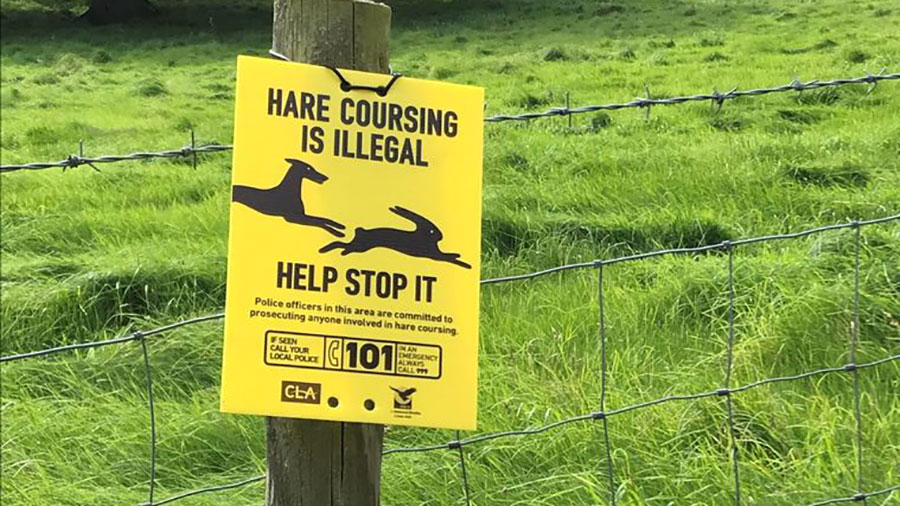Survey shows scale of hare coursing threat to farmers
 © Yorkshire Agricultural Society
© Yorkshire Agricultural Society Hare-coursing gangs are threatening farmers with violence and intimidation, according to a new survey which directs criticism at police response times.
The Yorkshire Agricultural Society poll paints a disturbing picture of the effect this illegal activity is having on farming families from as far north as Aberdeenshire to Somerset in the South West.
Of the 300 or more farmers surveyed, 48% said they had been threatened or verbally assaulted and one was physically attacked.
See also: What to do if you’re a victim of… hare coursing
One in five had spent at least £5,000 on repairing damage or taking preventative action in the past three years – for 7% that bill exceeded £10,000.
In some cases, sheep had been killed and livestock allowed to escape onto highways.
More than half of the participating farmers had raised the issue with police or their MP. But the survey suggested farmers lacked confidence in the police to respond quickly to a report of hare coursing.
Only 18% felt the police response rate was satisfactory.
The farm of Great Yorkshire Show director Charles Mills has been targeted by hare coursers for at least 35 years.
“Hare coursing clearly continues to be a reoccurring problem on many farms, and farming families are paying a heavy price, both in terms of their sense of safety and wellbeing being compromised, and the costs of repairing damage and installing deterrents,” he said.
Mr Mills, who farms near York, described it as a “hugely frustrating situation”.
“The survey results tell me that hare coursing is not being driven out of the countryside anywhere near effectively enough. This needs to change.”
He said farmers needed more consistent communication from police forces as reassurance that this crime was being taken seriously and was being reported.

Yorkshire Show director Charles Mills © Yorkshire Agricultural Society
Widespread incidents
The highest number of hare-coursing incidents were reported from farmers in North Yorkshire and East Yorkshire, but there were also incidents in Aberdeenshire, Gloucestershire, Somerset and Northern Ireland.
The survey findings have been shared with Defra, MPs, police crime commissioners, the Home Office and the National Police Chiefs Council.
Last month, the government included a commitment to introduce new laws to crack down on hare coursing as part of its new Action Plan for Animal Welfare.
NFU regional director Adam Bedford said that announcement was encouraging.
“We are eager to see the detail of their plans and understand how we can continue to work with them and the police to secure the best possible outcome.”
Four main findings of survey
1. Farms are repeatedly targeted – in 82% of cases, farms had fallen victim to this crime at least three times since the start of 2020
2. 29% of farmers didn’t call police because of a lack of confidence in response times
3. Of the incidents that were reported, only 28% of farmers said officers had responded in the given time frame
4. Crop damage was the most widely reported consequence of hare coursing
